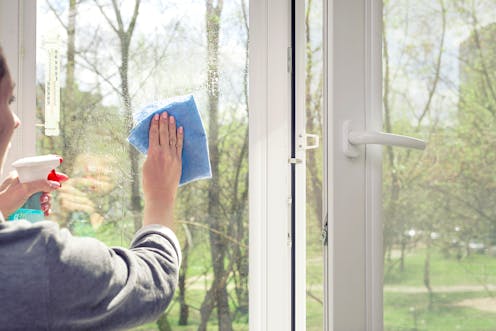What it's like to be a 'black economy' worker
- Written by Miriam Vandenberg, Public Health Lecturer (University of Tasmania) and PhD Candidate, Southgate Institute for Health, Society & Equity, Flinders University

Nina, not her real name, works for a cleaning company that sends her into private homes, in exchange for about $20 per hour, cash-in-hand.
She’s had numerous cash-in-hand jobs over the past few years. She used to work in restaurants where the pay was around $12 per hour. She told me she does it quite simply “for the money”.
Nina is like many other workers who are part of “the black economy” in Australia - businesses and individuals who operate outside the tax and regulatory system. The federal government announced a raft of measures to counter this in the recent budget.
Read more: Precarious employment is rising rapidly among men: new research
But the black economy is more common than we think – how many of us have paid tradies, gardeners or cleaners cash without the exchange of relevant paperwork? For many people this is actually an important source of income.
I recently interviewed 24 black economy workers in South Australia and I found that they come from many different walks of life. They are also from different backgrounds from the highly educated with multiple degrees to those with limited education.
For example, Nina’s life is complex – she has family caring responsibilities, there are household debts and her husband “doesn’t allow her to work elsewhere”, despite her skills in other areas.
I found that some of the people I interviewed turn to the black economy simply to make ends meet, while others are “forced” into this type of work by their employers.
Many feel disempowered and experience multiple barriers to finding formal work that is fair and decent. I wouldn’t say that anyone I have interviewed has become a black economy worker by choice - their stories are rarely straight forward.
I asked Nina about the impact of informal work she does on her health and well-being. She described to me various injuries she has sustained and her concerns about being exposed to toxic cleaning chemicals. There are no required occupational health and safety standards to adhere to, though Nina chooses to wear gloves.
Read more: Workers are actually feeling less insecure in their jobs
But like so many other black economy workers I have interviewed, it’s the psychological effects of this type of work that often come to the fore – the powerlessness and lack of control, exploitation, shame and the stress associated with “being caught”.
Nina told me she feels “like I’m someone from a lower class”.
She said:
I really would like to have a formal job and I’d love to pay tax, as long as I can pay for myself and my family, but unfortunately it is very hard.
Some of the workers I interviewed are battling with mental illness and others are migrants who struggle to have their qualifications recognised.
There are actually many legal activities contributing to the black economy such as people who pick vegetables and fruit in season and those who tutor high school students in chemistry and physics. I interviewed people who work in horticulture, retail, hospitality, arts, construction, tutoring, recycling, mechanical repairing, the beauty industry and childcare.
Some of these industries will be targeted by the government in response to the recommendations of the Black Economy Taskforce. For example, the establishment of a hotline to detect black economy activities and the expansion of reporting requirements and measures aimed at visa holders.
The notion of a “fair go” is a well-recognised Australian mantra, and one that is being used to sell the government’s crackdown on the black economy. Many Australians would agree that everyone should pay their fair share of tax.
But the government’s budget announcements also implicate much smaller businesses as well as individuals, where the flow-on effects are likely to be felt by those who say they have little choice but to work for cash-in-hand.
Building a society where everyone pays their fair share of tax is in all our interests, however, let’s hope it doesn’t have unintended consequences.
Authors: Miriam Vandenberg, Public Health Lecturer (University of Tasmania) and PhD Candidate, Southgate Institute for Health, Society & Equity, Flinders University
Read more http://theconversation.com/what-its-like-to-be-a-black-economy-worker-96537



















